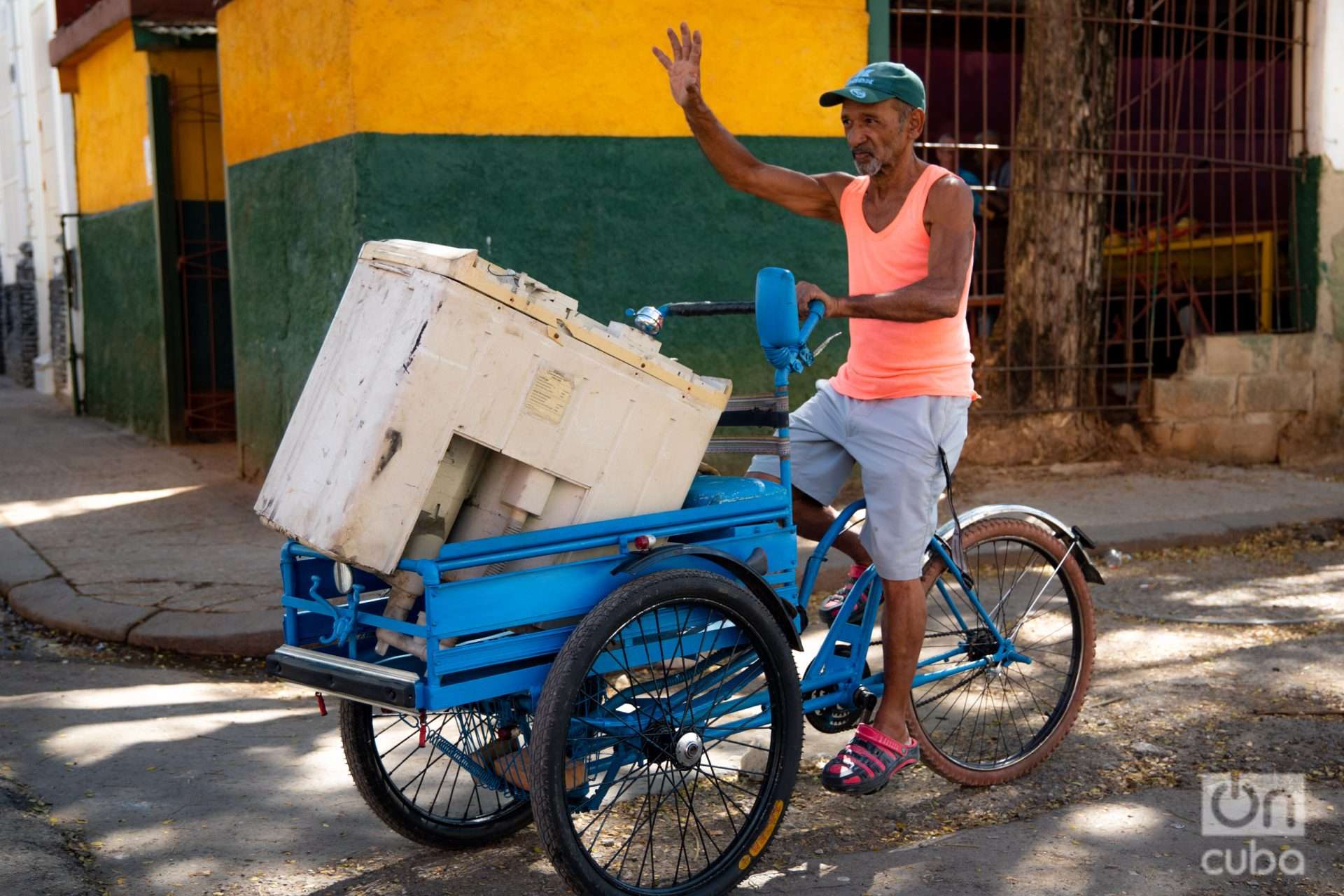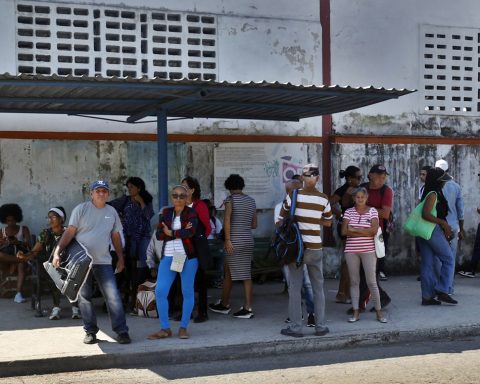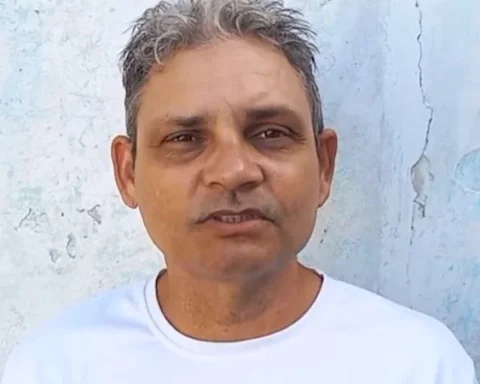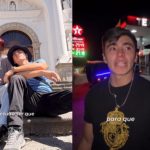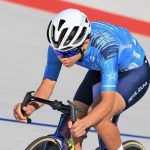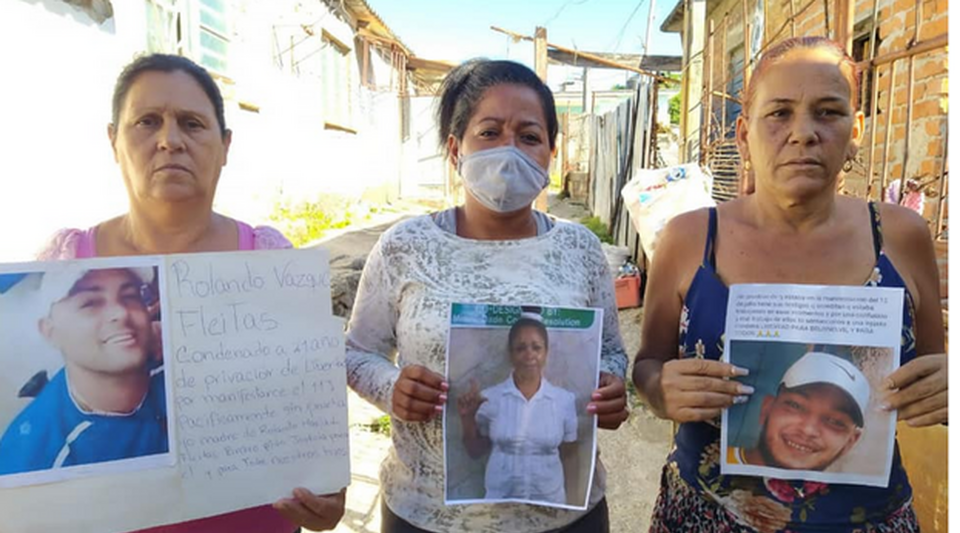He picked up a sheet of paper and a pencil. He made a plan, took the measurements and began to cut. The neighbors say that he spent the whole day with the riqui-riqui-riqui. And there were even those who looked at him with a bad face; but he would face anyone with his chin up and say to himself, “You don’t know what I’m going to do!”
Now the whole neighborhood has mounted his carriage. There he has charged the people of Virtudes street with air conditioners and televisions. He makes purchases in the stores and takes the equipment to the consolidated. In addition to his work in the workshop, taking punches and repairing electric motorcycle tires, his world-bike is his passion. And he did it all with a clean saw!
“With the saw in my hand, I am an art”, Alfredo tells me with overflowing confidence and joy. “With the irons I do what you cannot imagine.”
I did not imagine it, until I found out that it was a naval plotter. Tonga of people have fallen behind him so that he makes him a boat to leave. Everybody knows that if he makes the boat, he will fit her perfectly. With the carcass of two almendrones he makes a boat that goes directly to Yuma. But he has never lent himself to that. He knows that the sea is fierce. He knows this well because he worked on a ship for many years and remembers how the waves tore through it from side to side and ripped the planks off with the force of it.
Alfredo says that everyone who wants to leave has the right to leave by the way they find, as long as it is safe for life. Not like a nephew of his, who went to Brazil and later, crossing the Amazon, he crosses, jumps, jumps, goes down and goes up until he reaches the American dream. “That’s a Marco Polo expedition.” Thus concludes, between laughs, the story of the nephew that could well have ended in tragedy.
He grabs the rudder with his right hand and insists: “Anyone who wants to leave, let them go; The one who doesn’t want to leave is me. This is my country. What the leaders, the people, have to improve on this…”. And the truth is that he would have somewhere to settle. He has family and friends in the United States, Mexico, Spain, Italy, Serbia, and Germany. “With what I know, I’m going broad”, he tells me and I think it’s showing off, but I look at his crazy bike again and I believe him.
He tells me again that he has never wanted to live outside and tells that once he was visiting Mexico for several months. But he “not even crazy” would stay there, because after 8 at night there was shooting from one side to the other. During the day he was all very pretty, but in general too violent for his taste. Once they assaulted him inside a bus. “With guns and everything!” he assures.
But good things also happened to him. For example, she took care of stray dogs. About twenty of them would meet in a park and he would bring them food every day. People were amazed to see him with those puppies and believed they were his. That was the only thing that hurt him when he returned to Cuba: leaving them. But here were his rabbits waiting for him.
He breeds them; but he has never eaten one, although he is hungry. He doesn’t have a heart of stone for it, he says. Sometimes he gives them away, sometimes he sells them. With the rabbit thing, he has met many people who buy them to raise young. The tires that he now has in his cart were brought to him by a friend from Germany whom he met because he bought him a male rabbit; then he gave him the female and that’s how they became friends.
Also thanks to the rabbits I met him. I was cutting grass in the Communications park, next to the bus station. To be honest, the one who got into trouble with Alfredo was my 2-year-old son, who is a speedy runner. He ran away from me and when I came to realize he was on the bike-car. And then he told me: “Girl, leave it alone, if all the boys from the neighborhood have assembled here”.
In addition to children, the cart, as I said, has loaded all kinds of things. Pots with plants, books, shoes, tarecos, sweets, food from paladares, water heaters, refrigerators, gas stoves, and even an aunt who came from Santa Clara full of matules. She has taken people to the emergency hospital and takes some old people for physiotherapy every day. And she has never given him any problems, with the years that she has been giving the car a dog. What she does with her own hands, she takes more care of herself and is more affectionate.
The center is a bicycle hub to which he made the ears and inserted the press. The rings are also bicycle and motorcycle nipples. He himself made the steel rays, by hand with a bander. He explains to me that this trolley does not tip over, that the more load it has, the more stability it achieves because it has springs, load stabilizers, two arms with pins and an axis that stabilizes even if it hits any bump. He says it’s a “car-like” system and everything is mounted in sealed ball boxes.
Transportation is difficult and a favor is done to anyone, but physical work must be paid for. That is his maxim. And people trust his work, because they know that he is a serious guy, and cool. Once they called him to carry all the scaffolding for a Santeria ceremony: flowers, tureens, and offerings that would later be placed on the altars. “I respect, but I don’t believe in any of that,” he confessed to me.
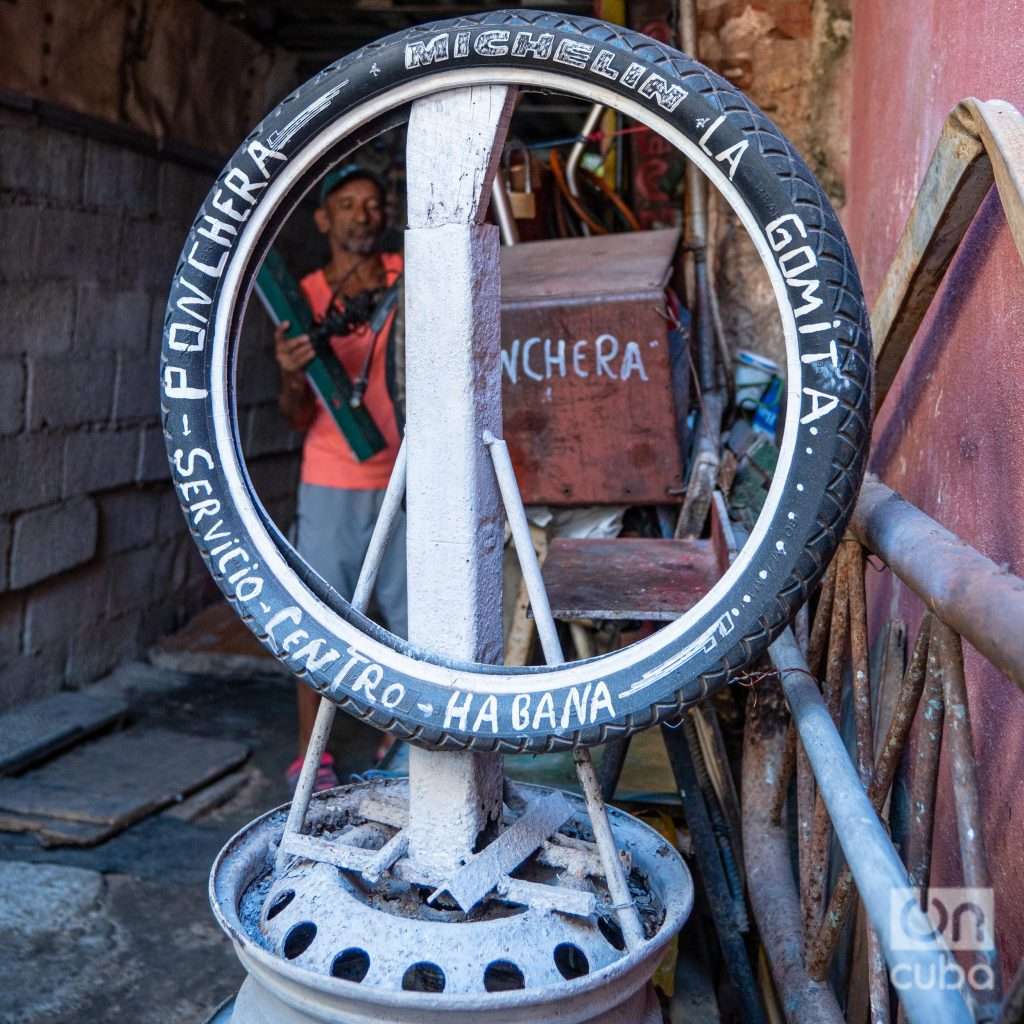
The ceremony was in the Iglesia de Regla and Alfredo went all the way from Centro Habana, hitting the pedals. The treatment with the client was to take and bring the elements. “Imagine you… I said to myself: ‘I’m already involved in this phenomenon’! I don’t believe in Santeria, but I had to get into that ceremony with them the whole day. They did some rituals for me and there was an altar to a saint that I don’t even know who it was, but they made me things to protect me. And when he hit me with hunger, I said: ‘Oh, my mother, I’m diabetic!’ But they gave me a tremendous banquet there at the feast of the saint. And for you to see, despite not being a believer, they treated me well there, I felt flattered. They told me: ‘You are a lawful people’”.
He says they paid him 25,000 pesos for that run to Regla and with that little money he threw a tremendous New Year’s Eve party. But Alfredo, in addition to money, is motivated by the new universes that allow him to see his handmade bicycle. With it he slips through the hole of a needle. Since he made it, he has brought her great religious, cultural, even poetic experiences. One day he was hired by a neighbor who works with Los Muñequitos de Matanzas to bring some drums to the Peña del Ambia. There he was lucky enough to meet the poet and they set a special table for him with food and beer and everything.
While I was throwing the cut grass into a sack in the little park, I recited that poem to her that said: “I saw the black woman with mauve eyes / I saw my black woman painted red / I saw my black woman with seven skirts / I I saw my black woman sing / with those skirts / as a flag necklace / the National Anthem cross-country.” He looked at me with big eyes and said: “Tremendous poet, El Ambia! And I met him!”
Alfredo wants to continue pedaling his bike-life. He plans to put a battery with a couple of lights and, in the future, add an electric motor to pull from behind and help him a bit, because he is already 63 years old and pedaling is hard. He still keeps the original plan in his house, the memory of when he dreamed of making a cart with his own hands.
